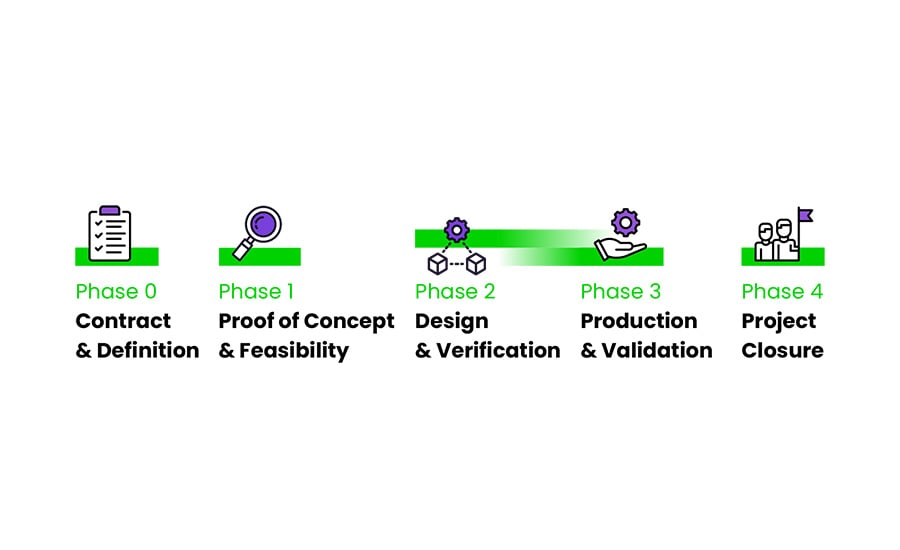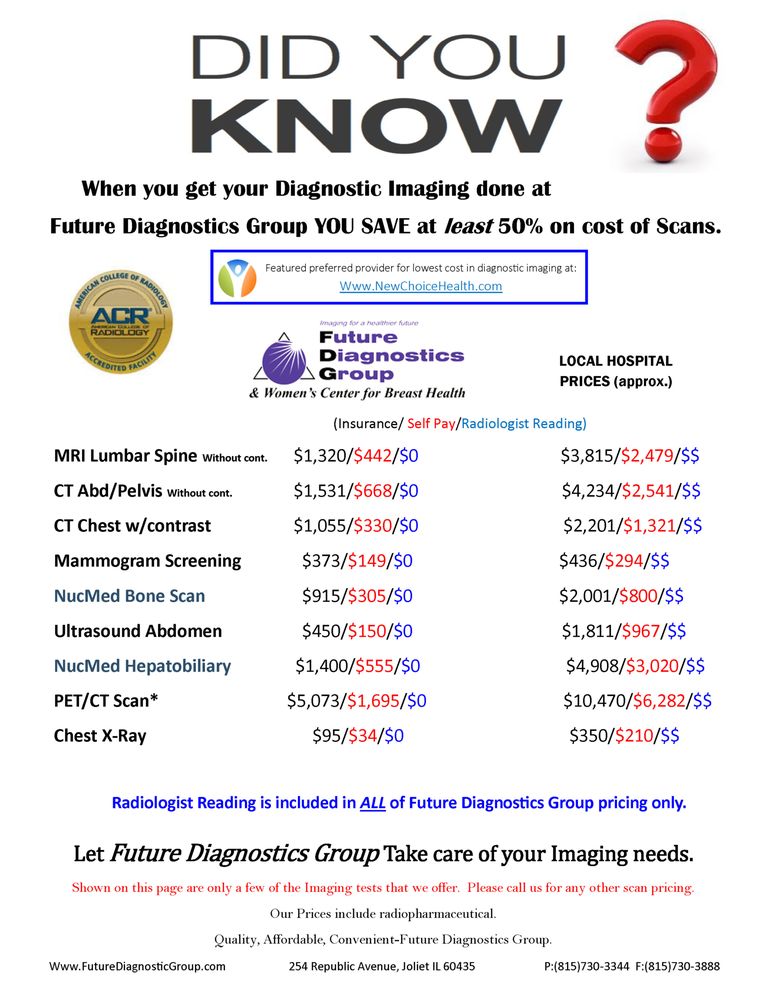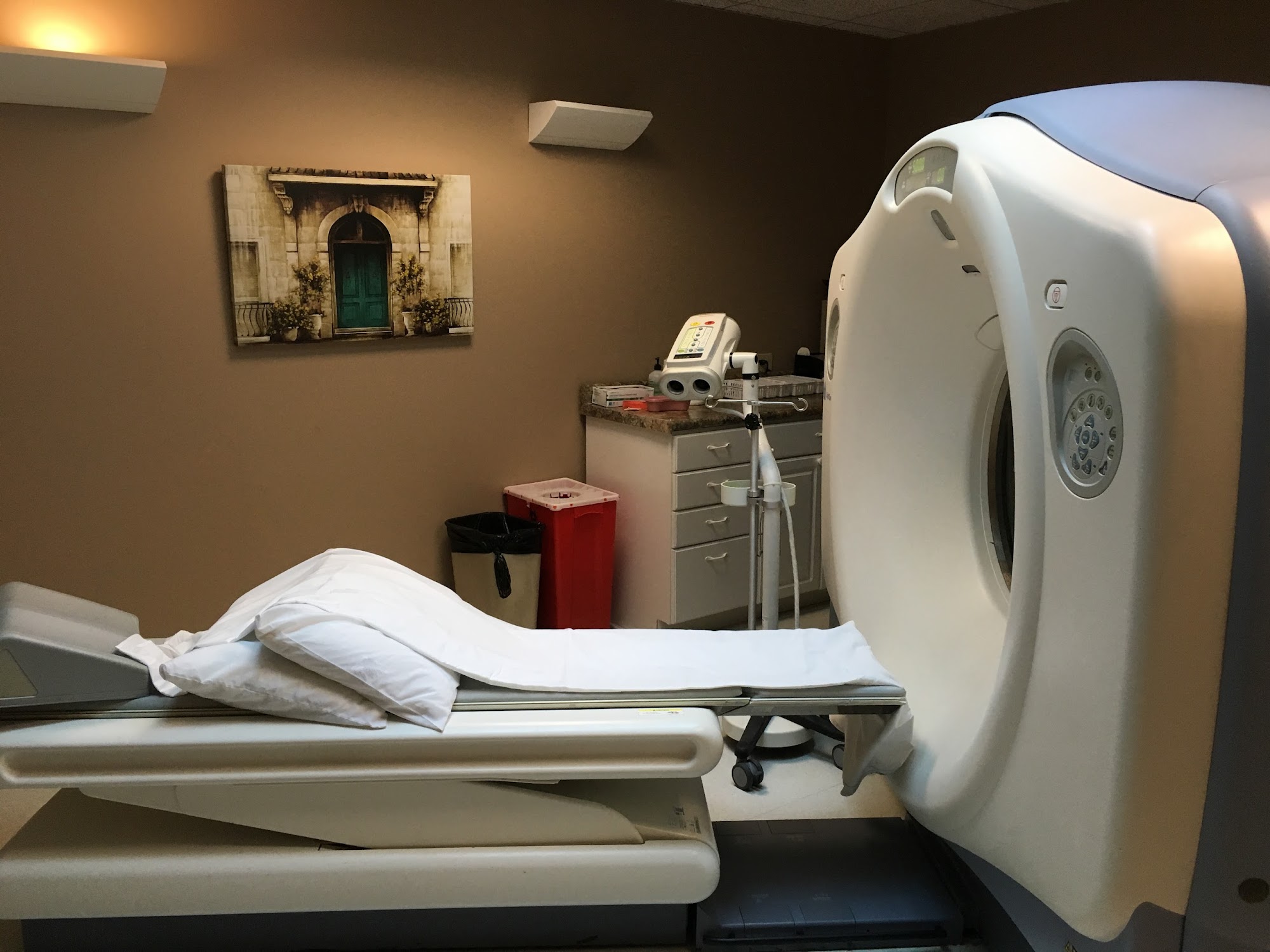In the rapidly evolving world of healthcare, the term "future diagnostics Joliet" is becoming increasingly significant. The healthcare landscape in Joliet is witnessing a transformation driven by advancements in diagnostic technology. These innovations are not only enhancing the accuracy of diagnoses but also improving patient outcomes. As we delve deeper into this topic, you'll discover how these advancements are shaping the future of healthcare in Joliet.
The healthcare industry is at the brink of a revolution, where technology plays a pivotal role in redefining diagnostic processes. In Joliet, the adoption of future diagnostics is enabling healthcare providers to deliver more personalized and effective care. This shift is driven by a combination of cutting-edge tools, artificial intelligence, and data analytics.
As we explore the concept of future diagnostics in Joliet, it's crucial to understand the impact these technologies have on patient care. The integration of advanced diagnostic tools is not only improving the speed of diagnosis but also enhancing the overall quality of healthcare services. Let's dive deeper into how these innovations are transforming healthcare in Joliet.
Read also:Unveiling The Extraordinary Journey Of Frederick Dump
Table of Contents
- Introduction to Future Diagnostics Joliet
- History of Diagnostics in Joliet
- Emerging Technologies in Future Diagnostics
- Impact on Patient Care
- Role of Artificial Intelligence
- Challenges in Implementing Future Diagnostics
- Benefits of Future Diagnostics
- Future Trends in Diagnostic Technology
- Expertise in Future Diagnostics
- Conclusion and Call to Action
Introduction to Future Diagnostics Joliet
Future diagnostics Joliet represents a paradigm shift in the way healthcare is delivered. The integration of advanced technologies is enabling healthcare providers to offer more precise and personalized care. This transformation is driven by a combination of innovation, research, and collaboration among healthcare professionals.
As the demand for more accurate and timely diagnoses grows, the adoption of future diagnostics in Joliet is becoming essential. These technologies are not only improving the quality of care but also enhancing the overall patient experience. By leveraging cutting-edge tools, healthcare providers in Joliet are setting new standards for diagnostic excellence.
The impact of future diagnostics extends beyond individual patient care, influencing the broader healthcare ecosystem. This includes improved resource allocation, enhanced data management, and better decision-making processes. As we explore the various aspects of future diagnostics, it's clear that Joliet is at the forefront of this healthcare revolution.
History of Diagnostics in Joliet
Understanding the history of diagnostics in Joliet provides valuable insights into the evolution of healthcare in the region. Over the years, diagnostic methods have evolved from basic tools to sophisticated technologies. This transformation has been driven by a combination of scientific discoveries and technological advancements.
Key Milestones in Diagnostic Evolution
- Introduction of imaging technologies such as X-rays and MRIs
- Development of laboratory tests for early detection of diseases
- Integration of digital health records for improved data management
These milestones have laid the foundation for the current advancements in future diagnostics. As Joliet continues to embrace new technologies, the diagnostic landscape is expected to evolve further, offering even more advanced solutions for patient care.
Emerging Technologies in Future Diagnostics
Several emerging technologies are shaping the future of diagnostics in Joliet. These innovations are designed to improve the accuracy, speed, and efficiency of diagnostic processes. By leveraging these technologies, healthcare providers can offer more personalized and effective care.
Read also:Game Of Thrones Chaplin A Comprehensive Guide To The Iconic Series
Key Technologies in Future Diagnostics
- Artificial intelligence for predictive analytics
- Telemedicine for remote diagnostics
- Wearable devices for continuous health monitoring
These technologies are transforming the way healthcare is delivered in Joliet. By integrating these tools into diagnostic workflows, healthcare providers can enhance the quality of care while reducing costs and improving patient outcomes.
Impact on Patient Care
The impact of future diagnostics on patient care in Joliet is profound. With the ability to diagnose diseases earlier and more accurately, healthcare providers can offer more effective treatment options. This leads to improved patient outcomes and enhanced quality of life.
Additionally, the use of advanced diagnostic tools enables healthcare providers to offer more personalized care. By analyzing patient data and identifying specific health risks, providers can tailor treatment plans to meet individual needs. This approach not only improves patient satisfaction but also enhances overall healthcare delivery.
Role of Artificial Intelligence
Artificial intelligence (AI) plays a crucial role in the development of future diagnostics in Joliet. By analyzing vast amounts of data, AI algorithms can identify patterns and make predictions that would be impossible for humans to detect. This capability is revolutionizing the diagnostic process, enabling healthcare providers to make more informed decisions.
Applications of AI in Diagnostics
- Predictive analytics for early disease detection
- Automated analysis of medical images
- Personalized treatment recommendations
As AI continues to evolve, its applications in diagnostics are expected to expand, offering even more advanced solutions for patient care in Joliet.
Challenges in Implementing Future Diagnostics
While the adoption of future diagnostics in Joliet offers numerous benefits, it also presents several challenges. These challenges include the need for significant investment in technology, training for healthcare professionals, and ensuring data privacy and security.
Key Challenges in Future Diagnostics
- High costs associated with implementing new technologies
- Limited availability of trained professionals
- Data privacy concerns and regulatory compliance
Addressing these challenges requires collaboration among healthcare providers, technology companies, and regulatory bodies. By working together, stakeholders can ensure the successful implementation of future diagnostics in Joliet.
Benefits of Future Diagnostics
Despite the challenges, the benefits of future diagnostics in Joliet far outweigh the drawbacks. These benefits include improved accuracy in diagnosis, faster treatment initiation, and enhanced patient outcomes. By leveraging advanced technologies, healthcare providers can offer more personalized and effective care.
Additionally, the use of future diagnostics can lead to cost savings in the long term. By identifying and treating diseases earlier, healthcare providers can reduce the need for more expensive treatments down the line. This approach not only benefits patients but also helps to optimize healthcare resources.
Future Trends in Diagnostic Technology
Looking ahead, several trends are expected to shape the future of diagnostic technology in Joliet. These trends include the continued integration of AI, the development of more advanced imaging technologies, and the expansion of telemedicine services.
Key Trends in Diagnostic Technology
- Integration of AI in diagnostic workflows
- Development of next-generation imaging technologies
- Expansion of telemedicine services for remote diagnostics
As these trends continue to evolve, the diagnostic landscape in Joliet is expected to become even more advanced, offering innovative solutions for patient care.
Expertise in Future Diagnostics
Building expertise in future diagnostics requires a combination of education, training, and experience. Healthcare professionals in Joliet are continuously expanding their knowledge and skills to stay up-to-date with the latest advancements in diagnostic technology.
Institutions such as universities and research centers are playing a crucial role in fostering expertise in future diagnostics. By offering specialized programs and conducting cutting-edge research, these institutions are preparing the next generation of healthcare professionals to lead the way in diagnostic innovation.
Conclusion and Call to Action
In conclusion, future diagnostics Joliet represents a transformative shift in healthcare delivery. By leveraging advanced technologies, healthcare providers can offer more accurate, personalized, and effective care. The impact of these innovations extends beyond individual patient care, influencing the broader healthcare ecosystem.
We invite you to join the conversation and share your thoughts on the future of diagnostics in Joliet. Leave a comment below or explore other articles on our website to learn more about the latest advancements in healthcare. Together, we can shape the future of diagnostics and improve patient care for generations to come.
For further reading, consider exploring the following resources:



